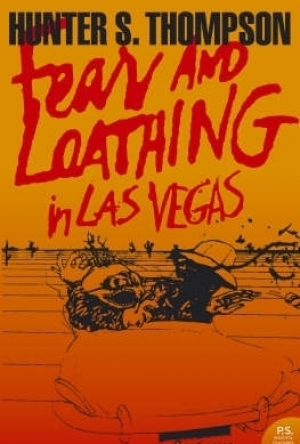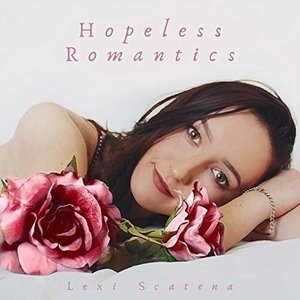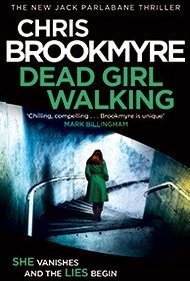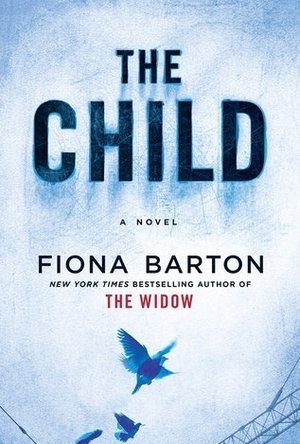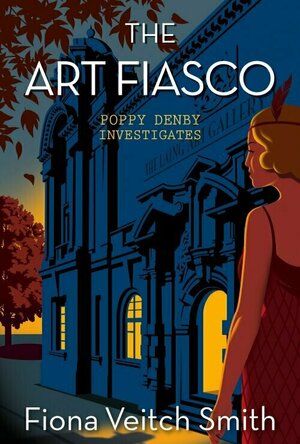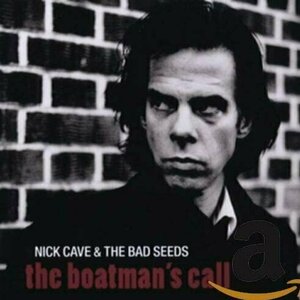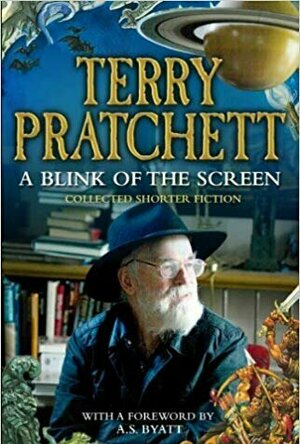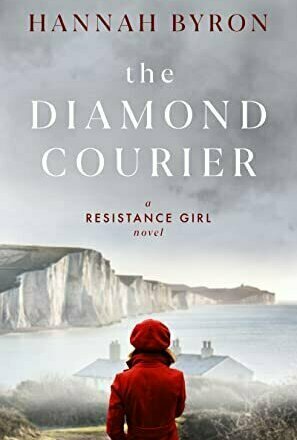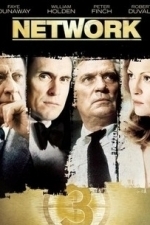Search
Search results
Chris Hooker (419 KP) rated Shots on the Bridge: Police Violence and Cover-Up in the Wake of Katrina in Books
Jan 12, 2018
I received this book in exchange for an honest review.
[Shots On The Bridge] by [Ronnie Greene] is a good piece of investigative journalism about one of the most notorious events in post-Katrina New Orleans.
As most people I was glued to my TV all throughout Katrina and I remember the news reports of a shoot out on a bridge involving police. As I recall the news reported that it was gangsters and looter shooting at the police. There were many reports of this nature in the confusion following one of the worst disasters in U.S. history. We now know that most of these reports were embellished at best or just down right lies.
[Ronnie Greene] did an excellent job relating the events as they occurred and giving a voice to the victims. The fact that these families were just trying to cross a bridge and came under fire by an overly armed unit of police is disconcerting enough but the fact that the police conspired to cover it up makes it even worse. Although it was wrong I could understand the officers reaction to the call of shots fired given the trauma that they had also been through. It is the cover up and lies that compound the wrongfulness of their actions.
I though [Greene] did a good job but he seems to jump around a bit too much. There is a lack of fluid transitions. Also, I feel his view was very one sided. I know that the police did something horrible but they were victims of Katrina as well and probably should not have been on duty at that point. If the correct relief and support had been provided this whole situation may have been avoided.
[Shots On The Bridge] by [Ronnie Greene] is a good piece of investigative journalism about one of the most notorious events in post-Katrina New Orleans.
As most people I was glued to my TV all throughout Katrina and I remember the news reports of a shoot out on a bridge involving police. As I recall the news reported that it was gangsters and looter shooting at the police. There were many reports of this nature in the confusion following one of the worst disasters in U.S. history. We now know that most of these reports were embellished at best or just down right lies.
[Ronnie Greene] did an excellent job relating the events as they occurred and giving a voice to the victims. The fact that these families were just trying to cross a bridge and came under fire by an overly armed unit of police is disconcerting enough but the fact that the police conspired to cover it up makes it even worse. Although it was wrong I could understand the officers reaction to the call of shots fired given the trauma that they had also been through. It is the cover up and lies that compound the wrongfulness of their actions.
I though [Greene] did a good job but he seems to jump around a bit too much. There is a lack of fluid transitions. Also, I feel his view was very one sided. I know that the police did something horrible but they were victims of Katrina as well and probably should not have been on duty at that point. If the correct relief and support had been provided this whole situation may have been avoided.
What's not to like (other than the casual prejudice)?
Contains spoilers, click to show
Okay, so I am one of those people who definitely saw the film before I read the book (and having now done the background reading I am even more impressed with Gilliam’s direction which uses some seriously creative camera angles to replicate the constantly expanding and contracting drug dependent points of view).
Whilst I understand that America’s post counter-culture, folksy racism/ misogyny/ homophobia [insert prejudice here] is subject to criticism by the author, there was more than one occasion where I found the discriminatory language jarringly unnecessary. It really dates the piece.
That said, on the whole, this is a really excellent read, and I was in equal parts disgusted and amused by the antics, and found myself (to some degree of shame) identifying with some of the scrapes and situations the Doctor of Journalism and his legal crony got themselves into- I mean who hasn’t found a casualty or two in their bathrooms following an impromptu house party? (Although I do wonder how events might read to those who avoided misspending their youth...)
It’s a short, pithy searing indictment of American culture, society and the tacit implication (or actually come to think of it- pretty explicit statement) that substance abuse is the only way to deal with and make sense of the chaos. So, one could argue, still pretty relevant.
Violence is frequently a first recourse, the idealisation of capitalism is metaphorically “burned to the ground” (yet antithetically also a cause for admiration) and towards the end a primate bites into an old man’s skull. What’s not to like?
Whilst I understand that America’s post counter-culture, folksy racism/ misogyny/ homophobia [insert prejudice here] is subject to criticism by the author, there was more than one occasion where I found the discriminatory language jarringly unnecessary. It really dates the piece.
That said, on the whole, this is a really excellent read, and I was in equal parts disgusted and amused by the antics, and found myself (to some degree of shame) identifying with some of the scrapes and situations the Doctor of Journalism and his legal crony got themselves into- I mean who hasn’t found a casualty or two in their bathrooms following an impromptu house party? (Although I do wonder how events might read to those who avoided misspending their youth...)
It’s a short, pithy searing indictment of American culture, society and the tacit implication (or actually come to think of it- pretty explicit statement) that substance abuse is the only way to deal with and make sense of the chaos. So, one could argue, still pretty relevant.
Violence is frequently a first recourse, the idealisation of capitalism is metaphorically “burned to the ground” (yet antithetically also a cause for admiration) and towards the end a primate bites into an old man’s skull. What’s not to like?
Bong Mines Entertainment (15 KP) rated Hopeless Romantics - Single by Lexi Scatena in Music
Jun 18, 2019
Lexi Scatena is a 20-year-old singer-songwriter based in Reno, Nevada. Not too long ago, she released a lovely debut single, entitled, “Hopeless Romantics”, produced by Toronto-based producer Vibeslow.
“‘Hopeless Romantics’ focuses on the naive, ‘honeymoon phase’ of love. Also, it brings back the sultry sound of old-school R&B while maintaining mainstream appeal. I wrote the song after traveling to New York for the first time with my boyfriend. Not only did I fall in love with the city, but I also fell in love with my boyfriend all over again. Literally, each word in the song was a part of the internal monologue I had while exploring the city.” – Lexi Scatena
‘Hopeless Romantics’ tells a passionate tale of a young woman who is head-over-heels in love with her significant other. Apparently, she wants to stay in her partner’s arms till death do them part.
Later, she admits that Cupid should get a raise for bringing them together, not only for this moment but for eternity.
‘Hopeless Romantics’ contains a relatable storyline and ear-welcoming vocals. Also, the likable tune possesses soothing instrumentation flavored with contemporary R&B and neo-soul elements.
“‘Hopeless Romantics’ is a dive into a sound that I never knew I was capable of doing, but always loved. Working with Vibeslow really opened my eyes to a genre that embodied everything I admire musically. With modern music focusing heavily on hip-hop-infused R&B, I wanted to do something different and incorporate old school RnB into my music, but with my own personal touch. I think that the current music industry is lacking valuable elements of old-school R&B, and I’m hoping to help bring those back.” – Lexi Scatena
During the day, Lexi Scatena is an ordinary college student, pursuing a bachelor’s degree in Journalism and Spanish at the University of Nevada, Reno.
At night, she’s serenading fans at live shows, posting covers of her favorite artists, and preparing for upcoming, original releases.
https://www.bongminesentertainment.com/lexi-scatena-hopeless-romantics/
“‘Hopeless Romantics’ focuses on the naive, ‘honeymoon phase’ of love. Also, it brings back the sultry sound of old-school R&B while maintaining mainstream appeal. I wrote the song after traveling to New York for the first time with my boyfriend. Not only did I fall in love with the city, but I also fell in love with my boyfriend all over again. Literally, each word in the song was a part of the internal monologue I had while exploring the city.” – Lexi Scatena
‘Hopeless Romantics’ tells a passionate tale of a young woman who is head-over-heels in love with her significant other. Apparently, she wants to stay in her partner’s arms till death do them part.
Later, she admits that Cupid should get a raise for bringing them together, not only for this moment but for eternity.
‘Hopeless Romantics’ contains a relatable storyline and ear-welcoming vocals. Also, the likable tune possesses soothing instrumentation flavored with contemporary R&B and neo-soul elements.
“‘Hopeless Romantics’ is a dive into a sound that I never knew I was capable of doing, but always loved. Working with Vibeslow really opened my eyes to a genre that embodied everything I admire musically. With modern music focusing heavily on hip-hop-infused R&B, I wanted to do something different and incorporate old school RnB into my music, but with my own personal touch. I think that the current music industry is lacking valuable elements of old-school R&B, and I’m hoping to help bring those back.” – Lexi Scatena
During the day, Lexi Scatena is an ordinary college student, pursuing a bachelor’s degree in Journalism and Spanish at the University of Nevada, Reno.
At night, she’s serenading fans at live shows, posting covers of her favorite artists, and preparing for upcoming, original releases.
https://www.bongminesentertainment.com/lexi-scatena-hopeless-romantics/
Phil Leader (619 KP) rated Dead Girl Walking in Books
Nov 12, 2019
It has been a while since the last Jack Parlabane novel, Brookmyre's investigative journalist who has a knack for finding trouble and then effortlessly making it worse. But in this novel he makes a triumphant return - if in somewhat diminished circumstances.
Parlabane has been a victim of the Leveson enquiry into press standard and phone hacking. Hung out to dry as a scapegoat to save the real guilty parties (not that he would be above a little phone hacking but more that he would never get caught doing it) he has fallen out of the bottom of journalism and is seriously considering what else he can do.
Enter Mairi, the sister of a childhood friend who manages a band. The band are very much the 'next big thing' and following a successful European tour are now heading to the United States. The only problem is that their lead singer and songwriter has gone missing. Mairi needs her found and figures Jack's investigative skills are what is needed.
The narrative more-or-less alternates between following Parlabane as he tries to work out where the singer is and the private blog/diary of the band's new violinist, parachuted into the band and feeling very much out of her depth. The Parlabane thread contains its fair share of action and humour in equal measures. The diary entries seem very authentic in their descriptions of the closed and self-regarding world of a rock music tour.
The plot is not complex but compelling as both strands come together at the end. The reveal is hardly devastating or a huge twist but is entirely satsifying and in keeping with the work. As usual with Brookmyre there are inside jokes and nifty throw away band and song references littered throughout. It is also easy to read with short snappy chapters making it hard to put down without wanting to read just another one.
In in all I thought this was a great book from Brookmyre and it was so good to see Parlabane back in action.
Parlabane has been a victim of the Leveson enquiry into press standard and phone hacking. Hung out to dry as a scapegoat to save the real guilty parties (not that he would be above a little phone hacking but more that he would never get caught doing it) he has fallen out of the bottom of journalism and is seriously considering what else he can do.
Enter Mairi, the sister of a childhood friend who manages a band. The band are very much the 'next big thing' and following a successful European tour are now heading to the United States. The only problem is that their lead singer and songwriter has gone missing. Mairi needs her found and figures Jack's investigative skills are what is needed.
The narrative more-or-less alternates between following Parlabane as he tries to work out where the singer is and the private blog/diary of the band's new violinist, parachuted into the band and feeling very much out of her depth. The Parlabane thread contains its fair share of action and humour in equal measures. The diary entries seem very authentic in their descriptions of the closed and self-regarding world of a rock music tour.
The plot is not complex but compelling as both strands come together at the end. The reveal is hardly devastating or a huge twist but is entirely satsifying and in keeping with the work. As usual with Brookmyre there are inside jokes and nifty throw away band and song references littered throughout. It is also easy to read with short snappy chapters making it hard to put down without wanting to read just another one.
In in all I thought this was a great book from Brookmyre and it was so good to see Parlabane back in action.
As a worker tears apart an old house under construction in London, he makes an unsettling discovery: tiny bones. The police believe they belong to a baby who was buried years earlier. The story catches the eye of journalist Kate Waters, who immediately wants to determine the child's identity. Her research leads her to a missing child from several decades in the past: a stolen baby, who was never found. Kate finds herself drawn into the missing baby's case and the lives of several women: Angela, a mother who had her baby stolen many years ago; Emma, who once lived on the block where the baby's bones were found; and Jude, Emma's mother.
I really enjoyed Barton's previous novel, The Widow, and I have to say that THE CHILD did not disappoint. It's hard exactly to describe her books, but they have some sort of power over you, drawing you into their narrative and making it difficult to come back to reality until you've reached the end. Much like THE WIDOW, we're presented with a cast of disparate characters-not all of whom are particularly likeable. I hadn't realized, for some reason, that THE CHILD would feature Kate again--a journalist we previously met in Barton's earlier book. I found Kate a much more engaging protagonist this time around: she came across as more human and flawed.
Otherwise, the novel focuses on timid, depressed Emma and her difficult relationship with her mother, Jude, who kicked Emma out of the house at the sixteen. Each woman has a turn at the narration, as does Angela, who is still reeling from having her baby stolen from the hospital (and never found). Barton does a skillful job weaving their stories together. Everything unfolds in bits and pieces as the tale progresses in the eyes of each of our narrators. For me, it was extremely riveting: just as one shocking piece came out, another one would fall into place.
Barton also gives us an excellent look into the journalism business, with a focus on how Kate writes her stories, with a strong emphasis on real (face-to-face, non-Internet-based) research. We see firsthand how the current social media craze is affecting the newspaper world. It's refreshing, as we get to basically see a crime/story solved, yet not necessarily through the lens of a typical police drama.
Overall, I really enjoyed this one. I figured out parts of it as it went along, but found it to be a very compelling read. Definitely worth picking up.
I really enjoyed Barton's previous novel, The Widow, and I have to say that THE CHILD did not disappoint. It's hard exactly to describe her books, but they have some sort of power over you, drawing you into their narrative and making it difficult to come back to reality until you've reached the end. Much like THE WIDOW, we're presented with a cast of disparate characters-not all of whom are particularly likeable. I hadn't realized, for some reason, that THE CHILD would feature Kate again--a journalist we previously met in Barton's earlier book. I found Kate a much more engaging protagonist this time around: she came across as more human and flawed.
Otherwise, the novel focuses on timid, depressed Emma and her difficult relationship with her mother, Jude, who kicked Emma out of the house at the sixteen. Each woman has a turn at the narration, as does Angela, who is still reeling from having her baby stolen from the hospital (and never found). Barton does a skillful job weaving their stories together. Everything unfolds in bits and pieces as the tale progresses in the eyes of each of our narrators. For me, it was extremely riveting: just as one shocking piece came out, another one would fall into place.
Barton also gives us an excellent look into the journalism business, with a focus on how Kate writes her stories, with a strong emphasis on real (face-to-face, non-Internet-based) research. We see firsthand how the current social media craze is affecting the newspaper world. It's refreshing, as we get to basically see a crime/story solved, yet not necessarily through the lens of a typical police drama.
Overall, I really enjoyed this one. I figured out parts of it as it went along, but found it to be a very compelling read. Definitely worth picking up.
BookInspector (124 KP) rated The Art Fiasco (Poppy Denby Investigates #5) in Books
Nov 9, 2020
The protagonist in this book is Poppy Denby, an investigative journalist from London, who is visiting her family in Newcastle and the towns around it. After a famous artist is murdered, Poppy needs to figure out who actually killed her, to protect her aunt, that is accused of it. I fell in love with Poppy instantly, she is such a cool young woman, and her interactions with other characters are very amusing to read about. The story is told from multiple perspectives, and it was a true joy to know more about the characters that sometimes get forgotten. There are quite a few characters in this book, and the author provides a very handy list of all the characters at the beginning of the book. (I did not need to use it though 🙂 ) All the characters are diverse, very charismatic, very intriguing personalities, some of them have disabilities, and I really loved the author’s choice of all the characters for this novel.
The narrative of this book was very absorbing to me. I really loved the 1920ties atmosphere and the whole setting of this novel. I liked the way the author played with the multiple timelines in this novel, there were parts from the past, as well as the present, that increased my curiosity even more. There is a lot of things happening in this novel, but the whole investigation was written superbly. I really loved how the author was trying to confuse the reader, and how all the clues were piecing the whole story beautifully. The topics discussed in this novel were paedophilia, coal miner’s lives, the art world, romance, family relationships, teenage pregnancy and many more. The author has experience in art and journalism, and I really liked that she utilised her personal experience in this novel.
I absolutely loved the writing style of this book, the whole book is masterfully plotted and kept me guessing throughout the whole book. The author provides the map of Newcastle in 1920ies, to allow the reader to follow Poppy throughout her adventure. The chapters are to the longer side, but the story really gripped me, so I just could not put it down. Even though this book is a part of a series, it can easily be read as a stand-alone. The ending of this book was spectacular and I think it rounded the story very well.
So, to conclude, Poppy Denby has a new fan! I thoroughly enjoyed this novel, filled with unique and complex personalities as well as incredibly well-plotted narrative, the had me glued to this book, and always intrigued.
The narrative of this book was very absorbing to me. I really loved the 1920ties atmosphere and the whole setting of this novel. I liked the way the author played with the multiple timelines in this novel, there were parts from the past, as well as the present, that increased my curiosity even more. There is a lot of things happening in this novel, but the whole investigation was written superbly. I really loved how the author was trying to confuse the reader, and how all the clues were piecing the whole story beautifully. The topics discussed in this novel were paedophilia, coal miner’s lives, the art world, romance, family relationships, teenage pregnancy and many more. The author has experience in art and journalism, and I really liked that she utilised her personal experience in this novel.
I absolutely loved the writing style of this book, the whole book is masterfully plotted and kept me guessing throughout the whole book. The author provides the map of Newcastle in 1920ies, to allow the reader to follow Poppy throughout her adventure. The chapters are to the longer side, but the story really gripped me, so I just could not put it down. Even though this book is a part of a series, it can easily be read as a stand-alone. The ending of this book was spectacular and I think it rounded the story very well.
So, to conclude, Poppy Denby has a new fan! I thoroughly enjoyed this novel, filled with unique and complex personalities as well as incredibly well-plotted narrative, the had me glued to this book, and always intrigued.
Tim Booth recommended The Boatman's Call by Nick Cave & The Bad Seeds in Music (curated)
Phil Leader (619 KP) rated A Blink of the Screen: Collected Shorter Fiction in Books
Nov 8, 2019
For someone who was as prolific at writing novels as Terry Pratchett he didn't write much in the way of short stories. As he himself comments in this collection of his work this is because 'they cost blood' to write and he wondered how others such as Neil Gaiman could write so many short stories. This is all the more surprising given his grounding in journalism, something that demands producing a story withing a set number of words.
The basis for this seems to be that the nugget of an idea behind a Pratchett book was rarely simple enough to be encapsulated neatly in the short story form; his characters and ideas took time to develop and that's before the addition of the amusing footnotes and his skill at producing pastiche, parody and satire of many different things without the narrative stumbling or swerving.
This collection shows that although relatively few in number, the Pratchett short story was just as fine as could be expected. Sometimes they could be a little rushed to get to the point before the end (best seen in his tale of a gnome from the country that finds other gnomes in a department store - the story that was later rewritten fully as Truckers)
This is also a somewhat eclectic mix. There is the first story that he was paid for about the devil wanting to promote hell, which he wrote at school but it is clear that he already had the flair for writing even then. A few science fiction stories including the prescient and dark #ifdefDEBUG "world/enough" "time" about someone retreating to a virtual reality world. There is the story that formed the first ideas that would eventually become The Long Earth and of course some Diskworld shorts and related notes.
Taken together they show that over a long span of time Pratchett was coming up with great ideas. There is a little uneveness but part of this is due to his writing style being different between Diskworld and his more science fiction based stories (something that confused a lot of Diskworld readers when they read The Long Earth, but goes back even to The Dark Side of the Sun and Strata both of which are very different to Diskworld in tone.
To this end the editors have been wise to have the Diskworld stories as the second half with the 'other' stories at the beginning. This avoids the tone changing too much between stories.
This sounds like it might be for the Pratchett 'completist', like one of those greatest hits albums that comes out with just one or two rare tracks, but really this is a great collection of short stories by any measure. A couple of these are fairly well known - Troll Bridge and Theatre of Cruelty - but there is nothing gratuitous here. And of course there are plenty of laughs and subtle takes on society and humanity.
The basis for this seems to be that the nugget of an idea behind a Pratchett book was rarely simple enough to be encapsulated neatly in the short story form; his characters and ideas took time to develop and that's before the addition of the amusing footnotes and his skill at producing pastiche, parody and satire of many different things without the narrative stumbling or swerving.
This collection shows that although relatively few in number, the Pratchett short story was just as fine as could be expected. Sometimes they could be a little rushed to get to the point before the end (best seen in his tale of a gnome from the country that finds other gnomes in a department store - the story that was later rewritten fully as Truckers)
This is also a somewhat eclectic mix. There is the first story that he was paid for about the devil wanting to promote hell, which he wrote at school but it is clear that he already had the flair for writing even then. A few science fiction stories including the prescient and dark #ifdefDEBUG "world/enough" "time" about someone retreating to a virtual reality world. There is the story that formed the first ideas that would eventually become The Long Earth and of course some Diskworld shorts and related notes.
Taken together they show that over a long span of time Pratchett was coming up with great ideas. There is a little uneveness but part of this is due to his writing style being different between Diskworld and his more science fiction based stories (something that confused a lot of Diskworld readers when they read The Long Earth, but goes back even to The Dark Side of the Sun and Strata both of which are very different to Diskworld in tone.
To this end the editors have been wise to have the Diskworld stories as the second half with the 'other' stories at the beginning. This avoids the tone changing too much between stories.
This sounds like it might be for the Pratchett 'completist', like one of those greatest hits albums that comes out with just one or two rare tracks, but really this is a great collection of short stories by any measure. A couple of these are fairly well known - Troll Bridge and Theatre of Cruelty - but there is nothing gratuitous here. And of course there are plenty of laughs and subtle takes on society and humanity.
Hazel (1853 KP) rated The Diamond Courier in Books
Dec 10, 2020
Twenty years have passed since the end of Hannah Byron's World War One novel In Picardy's Fields. It is now 1939 and the Second World War is just beginning, but all seems peaceful in Kent, England where the narrator, Lili Hamilton, lives with her parents. War is the last thing on Lili's mind as she contemplates how to get out of an arranged marriage and pursue a career in journalism.
The surname Hamilton may be familiar to those who have read the previous book but Lady Madeleine has left her war achievements far behind in The Diamond Courier where she plays the role of a prim and proper lady of the house. Her daughter, Liliane, feels trapped by her sensible parents' expectations who thwart her plans to be a political journalist. Yet Lili, encouraged by the handsome leader of the British Communist Party Leo Oppenheim, perseveres, thus estranging herself from her family.
Lili soon learns living in London with Leo is not the life she desired, but feels it is too late to back out, especially after witnessing the treatment of Jews on the continent. The Jewish community need someone to bring their precious diamonds to safety before the Germans get their hands on them, and they believe Lili is the best person for the job. Unless, of course, she gets caught.
The Diamond Courier is much darker than Byron's previous book. Naturally, war is not a happy topic, but the sense of hope felt in In Picardy's Fields is missing in this novel. The story divides into two sections, "Leo" and "After Leo". The former is lengthier, drawn-out, and not always pleasant to read. The latter, on the other hand, is packed with danger, excitement and adventure.
For Lili, Communism is something new and exciting, which she desires to pursue. The party has clear views about the war, with which all members must agree. Yet, when faced with the horrors of war, Lili realises she must cast aside her political opinions. Whether Communist, Jew, sympathiser or resistance member, no one deserves the terrible treatment delivered by the Nazis.
Although this is a work of fiction, Byron remains faithful to the true nature of the Second World War. She does not gloss over any of the atrocities and, whilst the reader keeps their fingers and toes crossed that Lili will get her "happily ever after" ending, this cannot be possible for everyone in the novel.
Aiming to show the strength of women living in a "man's world", Byron has created female characters of whom to be proud and respect. Whilst the storyline may not always be pleasant, it is a gripping narrative that immerses the reader into Lili's life and experiences. Hannah Byron has a way with words that keeps the reader engaged throughout. She is an author to keep an eye on.
The surname Hamilton may be familiar to those who have read the previous book but Lady Madeleine has left her war achievements far behind in The Diamond Courier where she plays the role of a prim and proper lady of the house. Her daughter, Liliane, feels trapped by her sensible parents' expectations who thwart her plans to be a political journalist. Yet Lili, encouraged by the handsome leader of the British Communist Party Leo Oppenheim, perseveres, thus estranging herself from her family.
Lili soon learns living in London with Leo is not the life she desired, but feels it is too late to back out, especially after witnessing the treatment of Jews on the continent. The Jewish community need someone to bring their precious diamonds to safety before the Germans get their hands on them, and they believe Lili is the best person for the job. Unless, of course, she gets caught.
The Diamond Courier is much darker than Byron's previous book. Naturally, war is not a happy topic, but the sense of hope felt in In Picardy's Fields is missing in this novel. The story divides into two sections, "Leo" and "After Leo". The former is lengthier, drawn-out, and not always pleasant to read. The latter, on the other hand, is packed with danger, excitement and adventure.
For Lili, Communism is something new and exciting, which she desires to pursue. The party has clear views about the war, with which all members must agree. Yet, when faced with the horrors of war, Lili realises she must cast aside her political opinions. Whether Communist, Jew, sympathiser or resistance member, no one deserves the terrible treatment delivered by the Nazis.
Although this is a work of fiction, Byron remains faithful to the true nature of the Second World War. She does not gloss over any of the atrocities and, whilst the reader keeps their fingers and toes crossed that Lili will get her "happily ever after" ending, this cannot be possible for everyone in the novel.
Aiming to show the strength of women living in a "man's world", Byron has created female characters of whom to be proud and respect. Whilst the storyline may not always be pleasant, it is a gripping narrative that immerses the reader into Lili's life and experiences. Hannah Byron has a way with words that keeps the reader engaged throughout. She is an author to keep an eye on.
RəX Regent (349 KP) rated Network (1976) in Movies
Feb 19, 2019
“I’m mad as hell and I’m not gonna take it anymore!”
…the lasting legacy of Peter Finch’s rants, which began with a breakdown and became the ratings winner in the 1970’s Network driven news media. This is of course, fiction but the commentary on the changing and more corporate driven American media industry of the the time is not without merit.
Smartly scripted, on the ball cynicism and yet harking back to the rose tinted nostalgia common with American media movies in whcih the industry was supposedly filled with Walter Cronkites,
the notion that American press was once beyond reproach is clearly a fallacy, in contrast, the notion that American news media was becoming so ratings driven that the news gave way to outlandish editorialism, is not.
Howard Beale (Finch) has an on air breakdown and whilst his best friend and producer, Max Schumacher (William Holden) tries to pull him from the air waves, allowing him to bow out with some dignity, the new wave of corporate management lead by CEO Frank Hackett (Robert Duval) and Holden’s replacement and eventual lover, Diana, (Faye Dunaway), have other ideas.
She sees an opportunity in the ratings spike gained by Beale’s rants which speak to the peoples growing frustrations and takes advantage, only driven by ratings.
Though the screenplay and performances are nothing less than brilliant, there are two core problems with this movie.
The first being that it is too long. The plot seems to be dragged out and repetitive as we approach the almost inevitable conclusion and the second is the level of preaching. But this is a symptom of the first, opening with a good argument, with old school journalism versus the TV generation and as the film goes on, the arguments need to escalate but since this was covered in the first half an hour, the points become laboured and over started.
The notion that the TV generation is shallow and amoral is put at odds with the middle aged newspaper reader, where time and decency are standard. This is a point which I refuse to accept since some of the 20th centuries most amoral acts where committed either before 1936, the birth of television and in the first couple of decades there after, by the very generation whcih is being held up as the moral standard here.
large_network_blu-ray_3The press has always had its paymasters, always had to sell newspapers and whilst the medium and methods may have changed, this does feel like sour grapes by the end. Criticising the characters motivations is one thing, but this film seems to imply that the modern world of television is making sociopaths of us all, dumbing us down and numbing our emotions to the point of accepting nothing but pure spectacle.
In many ways this is true but is also a very flawed argument and comes across as bunch old men crying into there Scotch in some dimly lit bar, in a way not too dissimilar to the print or broadcast media of today, hitting out at the blogging and twitter generation.
The ending was amusing though with the quote “This was the story of Howard Beale, the only known case of a man killed because of poor ratings”.
Very droll.
Smartly scripted, on the ball cynicism and yet harking back to the rose tinted nostalgia common with American media movies in whcih the industry was supposedly filled with Walter Cronkites,
the notion that American press was once beyond reproach is clearly a fallacy, in contrast, the notion that American news media was becoming so ratings driven that the news gave way to outlandish editorialism, is not.
Howard Beale (Finch) has an on air breakdown and whilst his best friend and producer, Max Schumacher (William Holden) tries to pull him from the air waves, allowing him to bow out with some dignity, the new wave of corporate management lead by CEO Frank Hackett (Robert Duval) and Holden’s replacement and eventual lover, Diana, (Faye Dunaway), have other ideas.
She sees an opportunity in the ratings spike gained by Beale’s rants which speak to the peoples growing frustrations and takes advantage, only driven by ratings.
Though the screenplay and performances are nothing less than brilliant, there are two core problems with this movie.
The first being that it is too long. The plot seems to be dragged out and repetitive as we approach the almost inevitable conclusion and the second is the level of preaching. But this is a symptom of the first, opening with a good argument, with old school journalism versus the TV generation and as the film goes on, the arguments need to escalate but since this was covered in the first half an hour, the points become laboured and over started.
The notion that the TV generation is shallow and amoral is put at odds with the middle aged newspaper reader, where time and decency are standard. This is a point which I refuse to accept since some of the 20th centuries most amoral acts where committed either before 1936, the birth of television and in the first couple of decades there after, by the very generation whcih is being held up as the moral standard here.
large_network_blu-ray_3The press has always had its paymasters, always had to sell newspapers and whilst the medium and methods may have changed, this does feel like sour grapes by the end. Criticising the characters motivations is one thing, but this film seems to imply that the modern world of television is making sociopaths of us all, dumbing us down and numbing our emotions to the point of accepting nothing but pure spectacle.
In many ways this is true but is also a very flawed argument and comes across as bunch old men crying into there Scotch in some dimly lit bar, in a way not too dissimilar to the print or broadcast media of today, hitting out at the blogging and twitter generation.
The ending was amusing though with the quote “This was the story of Howard Beale, the only known case of a man killed because of poor ratings”.
Very droll.

